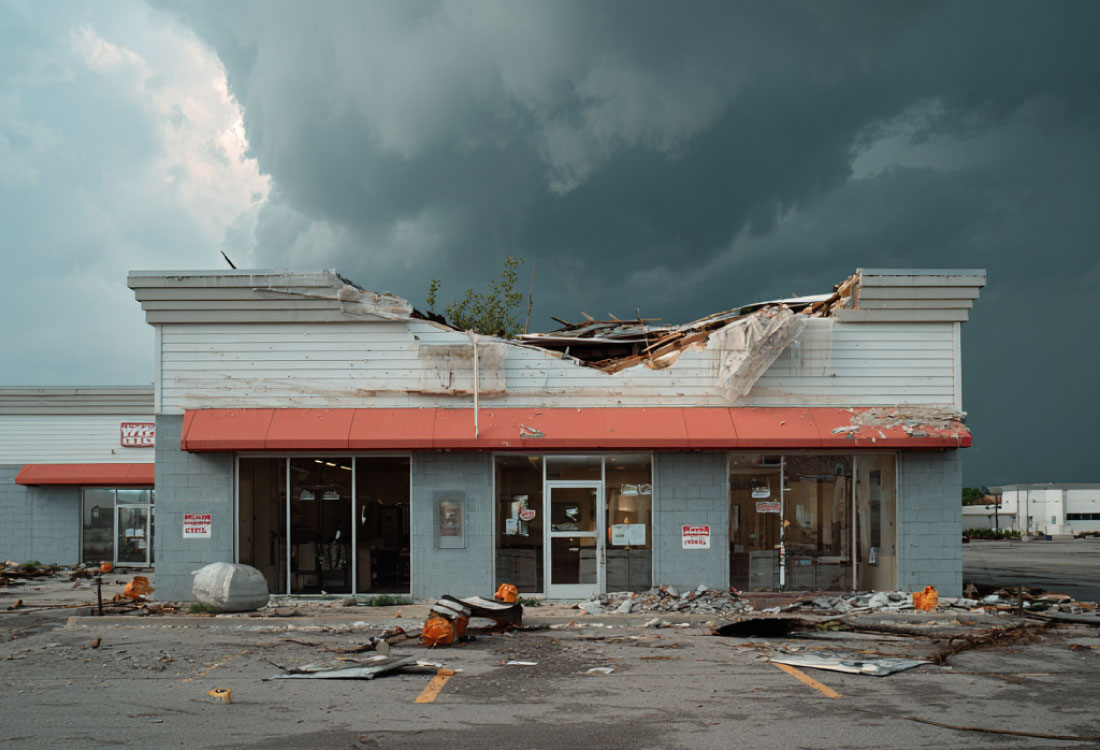
When you're running a business, unexpected disruptions aren’t a matter of if, but when. From severe weather and fire to vandalism and employee liability, businesses face a wide range of risks every day. Insurance is supposed to provide protection—but that protection only matters if your claim is filed correctly and paid fairly.
At Allegiant Public Adjusters, we’ve worked with business owners across Florida and Georgia who were shocked to discover how complicated, delayed, or undervalued their insurance claims became. Insurance companies aren't incentivized to pay out the full amount you may be owed.
In this post, we’ll walk you through the top 10 types of insurance claims made by business owners, what causes them, and how a public adjuster can help ensure your claim is taken seriously and paid fairly.
From hurricanes in Florida to tornadoes in Georgia, wind damage is one of the most common and most costly claims business owners face.
Insurance companies often try to categorize damage as "wear and tear" or exclude wind-driven rain. A public adjuster documents storm timelines and inspects hidden damage to connect it to your covered peril.
Water damage is frequently underpaid or denied altogether because insurers argue it's due to poor maintenance.
Water claims become even more complicated if mold develops later. It’s critical to document moisture content, perform infrared inspections, and show how the damage directly links to a covered incident—something public adjusters specialize in.
Fire can cripple a business in seconds—and even when the blaze is small, smoke and soot can damage walls, ventilation, electronics, and inventory.
Insurers may cover the rebuild but deny or limit compensation for cleaning, equipment replacement, or lost income. A detailed inventory and scope of loss by a public adjuster can drastically increase your recovery.
When your operations are suspended because of a covered loss, business interruption insurance kicks in to help you stay afloat. But calculating lost income isn’t easy.
Insurance companies often use generic formulas or deny time extensions. A public adjuster uses your actual financial records to build a compelling claim that reflects your unique business structure.
Criminal activity can lead to lost property, broken windows, damaged equipment, and emotional stress.
Police reports are just the beginning. Insurers want proof of ownership and value, which can be hard to provide retroactively. Public adjusters help create inventories, find comparable pricing, and document losses properly.

Flooding is typically not covered under a standard commercial policy and requires a separate flood insurance policy through the NFIP or a private carrier.
Flood claims are complex and require exacting standards for documentation and proof of cause. It’s easy to misclassify the loss, especially if water damage is also present. A public adjuster helps file both claims strategically and in compliance with FEMA standards.
If your business relies on commercial equipment—like HVAC, ovens, freezers, printing presses, or heavy machinery—breakdowns can halt operations immediately.
Getting coverage depends on knowing whether the loss falls under property, breakdown, or maintenance exclusions. An adjuster reviews your policy and works with vendors to prove the loss was sudden, accidental, and covered.
Although not physical, digital losses are becoming one of the most expensive risks for modern businesses.
Many cyber policies require prompt action, specific documentation, and forensic evidence. Public adjusters familiar with cyber claims can help prepare detailed timelines and negotiate with cyber insurers on your behalf.
Some damages aren’t immediately visible. It takes a trained eye to identify subtle signs of structural issues.
Examples include:
Public insurance adjusters play a critical role in identifying, documenting, and negotiating structural damage claims on behalf of policyholders. Structural issues can be complex and costly, and without proper documentation, insurance companies may undervalue or deny the claim. A public adjuster knows the process, like when to involve engineers to inspect and provide inspection reports and letters of opinion.
Collapse-related damage is often misunderstood. Insurance companies may deny claims by saying the structure wasn’t fully collapsed, just “partially damaged.”
Public adjusters document the specific language in your policy and use engineering reports to argue that the building is unsafe, unfit, or has suffered structural integrity loss—even if it's still standing.
Here’s what most business owners don’t realize: insurers often issue low initial offers, especially for complex or high-dollar losses. Here’s why that happens:
This is why businesses in Florida and Georgia increasingly turn to public adjusters after experiencing:
After Hurricane Ian, a Central Florida restaurant owner filed a claim for wind damage and business interruption. The insurer offered $86,000 for roof damage and dismissed the business interruption portion.
After hiring a public adjuster:
Final payout: $274,000—more than triple the original offer.
Even before disaster strikes, you can take proactive steps to strengthen future claims:
A public adjuster should be your first call after you notify your insurer of a loss. They can:
Running a business is hard enough without having to fight your insurance company. Yet that’s exactly what many business owners find themselves doing after a fire, flood, storm, or theft.
By understanding the most common types of commercial insurance claims—and how insurers often underpay them—you can take steps to protect your business, your team, and your future. Hiring a public adjuster early in the process ensures that your claim is handled correctly, completely, and with your best interest in mind.